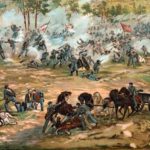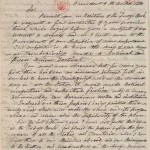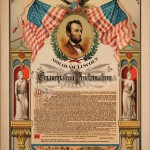James Wilson, a founding father from Pennsylvania, once said that “[l]aw and liberty cannot rationally become the objects of our love, unless they first become the objects of our knowledge.” Abraham Lincoln understood this well. A student of America, the Declaration of Independence and the country’s first principles, law and liberty were objects of Lincoln’s […]
Trump at the UN: Part 1, A Tale of Two Presidents and a Vision
INTRODUCTION Part 1 of a 5 Part Series On September 24, 2019 I had a court matter in Dixon, IL. During the nearly two-hour drive I was able to listen to President Trump’s speech at the United Nations. (A video of President Trump’s UN speech can be found at the end of Trump at the […]
Dorothea Dix: Superintendent of Civil War Nurses
While the Founding Mother of professional nursing, Florence Nightingale, whose birthday is the midpoint of National Nurses Week, was laboring in the Crimean War and establishing her nursing school in London, trouble was brewing the United States. As in Britain, it would be war to move forward nursing as a profession. The recognition of nursing […]
Sarah Hale’s Letter and Lincoln’s Thanksgiving Proclamation
In October, 1863, Sarah J. Hale’s fifteen year effort to have the last Thursday of November become a nationally recognized day of Thanksgiving became a reality when, in the midst of the Civil War, Abraham Lincoln issued a proclamation in response to Ms. Hale’s letter. Ms. Hale is often referred to as the Godmother of […]
US Constitution’s Thirteenth Amendment: Legal Abolition of Slavery
Abraham Lincoln issued The Emancipation Proclamation on January 1, 1863 freeing many slaves. Its scope was limited and its true legality unclear. Lincoln had freed the slaves in areas of rebellion with an executive order. His constitutional authority to do this was in question. For slavery to be abolished with certainty in the United States, a constitutional amendment was […]











ICYMI: DACA Goes To The Supreme Court
“[The President] shall take Care that the Laws be faithfully executed….” The United States Constitution: ARTICLE II, SECTION 3 There are a few other things going on besides impeachment. An example, the challenges to President Trump’s roll back of President Obama’s Deferred Action for Childhood Arrivals (DACA) got debated at the Supreme Court on November […]